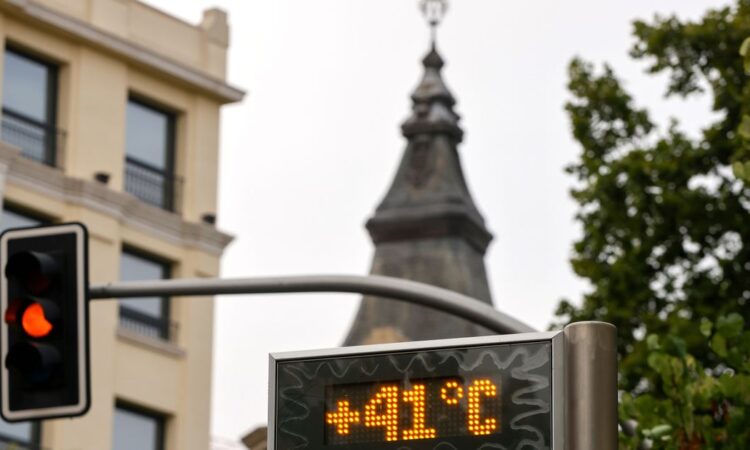
With temperatures across southern Europe hitting upwards of 40 degrees Celsius, popular tourist destinations such as Greece, Spain and Italy are seeing the worst of the heatwave.
Many holidaymakers are wondering whether it’s possible to cancel their trip and what their consumer rights are when it comes to such extreme weather conditions.
To help people who might be concerned, experts at wealth.co.uk have put together some advice on commonly asked questions surrounding cancelled holidays.
Consumer rights expert Luke Eales has issued the following information to keep in mind in to minimise the risk of losing money or your holiday.
Package travel regulations
Luke said: “If you’ve booked a package holiday, you probably have the strongest chance of making a case for your refund.
“Under the UK Package Travel and Linked Travel Arrangements 2018, if you’ve purchased a holiday package, you have the right to cancel your holiday if there are unavoidable and extraordinary circumstances at your destination (or its immediate vicinity) that significantly affect the performance of the package, or which significantly affect the carriage of passengers to the destination.”
Depending on the specific conditions and safety advice related to the heatwave, this may apply. With plenty of facilities shutting down across Europe to cope with the heatwave, Luke says this is something that could significantly affect the performance of a package holiday.
Travel insurance
This must always be sorted the day you book your holiday, and not just before you go.
Luke said: “When you’re booking it, always check the terms of your insurance. Most insurers cover cancellations due to ‘unforeseen and unavoidable’ circumstances, which might include extreme weather conditions.
“However, coverage varies widely, so travellers should read their policies carefully and contact their insurers if in doubt.
“If you’ve already booked travel insurance and don’t want to read through the entire terms and conditions, open up the document and ctrl+F search for phrases like ‘extreme weather’ to see if you can find information about your coverage.”
Top Trending Stories Today
Air travel
Some flights have been cancelled outright due to the weather conditions, and many are worrying if they’ll ever see their refund.
Luke said: “According to EU Regulation 261/2004 (still valid in the UK post-Brexit, thankfully), if your flight is cancelled, you’re entitled to either a full refund, a replacement flight at the earliest opportunity, or a replacement flight at a later date of your choice.
“If the cancellation is due to extraordinary circumstances, which could potentially include a severe heatwave, airlines are not obliged to provide additional compensation, so you may have to go into an additional battle to get your money back on things like accommodation.”
Accommodation bookings
Luke explained: “Most hotels, villas, and other accommodation services have their own cancellation policies. Plenty come with a stipulation that things need to be cancelled a week ahead of the booking.
“Check the terms and conditions of your booking, and consider reaching out directly to discuss your situation. If you booked your accommodation through a third-party platform, you should consult their cancellation policy as well.
“In my anecdotal experience, plenty of places are willing to change the dates of your stay, if you can’t secure a refund from them. So if you still want to eventually go to your destination, this is probably the best route to take if you can’t secure a full refund.”
Credit card protection
Under Section 75 of the UK Consumer Credit Act, if you paid for your holiday using your credit card, you may be able to claim a refund from your credit card company if the trip was cancelled and you can’t get your money back through other means.
This applies to transactions between £100 and £30,000 and can be a really effective way of getting your money back when an airline or hotel aren’t playing ball with your refund.
Keep constantly updated
As ever with developing situations, make sure you have your finger on the pulse when you’re about to travel and see what’s happening where you’re going.
The Foreign, Commonwealth & Development Office (FCDO) is an excellent resource which provides guidance about travelling to specific countries and regions, rather than checking social media which can be deceiving.
Don’t miss the latest news from around Scotland and beyond – Sign up to our daily newsletter here.






